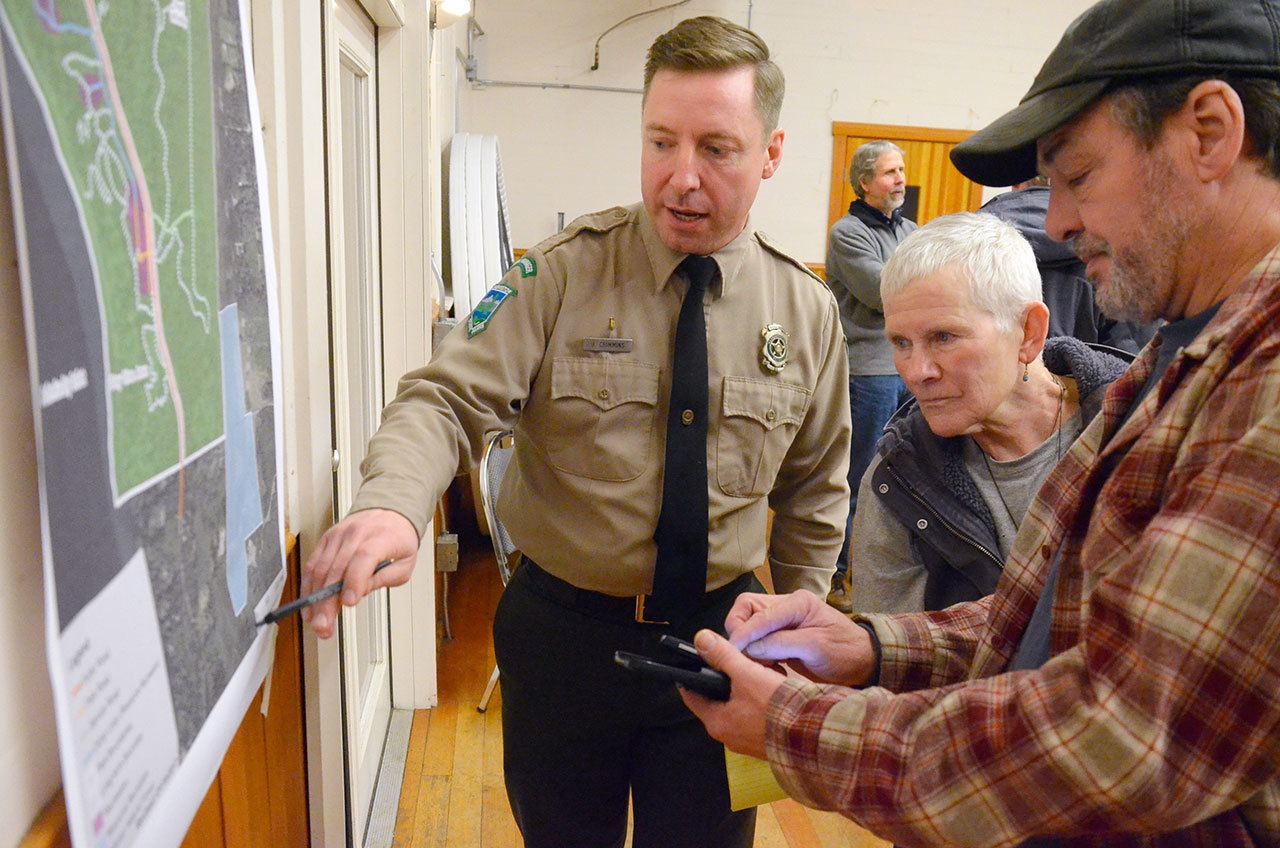Instead of permanently shuttering 46 campgrounds at South Whidbey State Park to mitigate the risk of falling trees, why not simply warn prospective users of the danger?
“Can’t we rename [it] ‘South Whidbey High Risk State Park?’” asked Dave Anderson, a Freeland resident.
His was one of the suggestions voiced during the state’s last community meeting Wednesday on its long-range plans for the park and other agency-owned properties on the South End before the proposals go before decision makers for adoption in March. The question, which earned a round of chuckles from the approximately 30 people in attendance, was asked by Dave Anderson, a Freeland resident and former state representative. It was in the context of Washington State Parks’ recommendation to permanently nix camping at the park because of the dangers associated with tree rot.
Anderson wanted to know whether a public warning could possibly save the popular 20-acre campgrounds.
Robert Fimbel, a forester and one of a handful of Washington State Parks officials in attendance, said he’d put a similar question before the Washington State Office of the Attorney General, asking if a posted safety advisory would suffice. The answer was “no,” that the public couldn’t truly give informed consent as the safety risk is deceptively complex. A forest may look OK to the untrained eye when in fact it can be unpredictably dangerous.
He recommended everyone be cautious, especially during bad weather.
“If it’s really windy, you probably shouldn’t go there,” Fimbel said.
The campground was closed two years ago following the discovery of widespread tree rot. It sparked discussions about the future of the campgrounds, and ultimately a formal Classification and Management Planning (CAMP) process — state parks’ version of a 20-year long range plan. It also looked at Possession Point park, technically a property, and 560 acres of tidelands in Useless Bay.
The latter properties are largely proposed to remain as is, though parks’ staff want to see if the tidelands can be transferred to the state Department of Land and Natural Resources. Parks’ staff believe the agency is better suited to manage the area.
The tidelands were acquired in 1947 and the intent was to later get upland access to the areas. That never happened, and the state says it’s time to pass it along. Several people at the meeting, however, suggested that parks should instead reexamine that plan and consider achieving its original goal.
Marianne Edain, a cofounder of Whidbey Environmental Action Network, took that further and suggested the department adopt a policy to acquire, when and as possible, any and all shoreline access points that become available, irrespective of size. Within 100 years, the agency could make a sizable dent in the effort to reclaim from private landowners beaches and access points around Puget Sound.
The deadline for public comments on the CAMP plan is March 8. They can be emailed to Randy Kline, a parks planner and project lead, at randy.kline@parks.wa.gov. The plan will go before the Washington State Parks and Recreation Commission on March 30 in Auburn.



